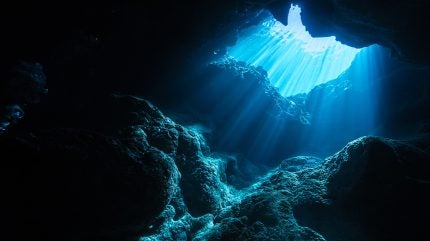Odyssey wins lawsuit against Mexico to continue seabed mining
The Florida-based company is carrying out phosphate mining off Mexico’s coast.
Alfie Shaw
Environmental group Greenpeace is also critical of the lawsuit, fearing its sets a precedent for corporations to overpower local environment groups.
In a statement, the organisation said: “It is unacceptable that [the arbiters] should side with a company that only seeks to continue enriching itself at the expense of the planet’s biodiversity and set a very negative precedent in the fight of civil society against this emerging industry.
“Underwater mining is not acceptable under any circumstances or conditions. There is no place for underwater mining in a sustainable future.”
Odyssey claims its project is necessary to ensure enhanced “fertiliser accessibility to support an ever-growing global population”. Phosphate is a key input in fertilisers.
September 24, 2024


Deep-sea mining activities beyond national jurisdiction are governed by the International Seabed Authority’s (ISA) exploitation regulations.
Credit: divedog/Shutterstock.
Florida-based deep-sea mining company Odyssey Marine Exploration has won a lawsuit against Mexico after the country rejected its environmental permits and shutdown its project without legitimate cause.
After the permits were rejected, the company took Mexico to arbitration and won $37.1m (718.86m pesos) from the country for breaching obligations.
In 2012, Odyssey was granted a concession to mine the Mexican seabed for 50 years. The phosphate deposit, located in waters off the coast of Baja California Sur in the Gulf of Ulloa, is considered one of the biggest in the world.
The extraction process has involved dredging 1km² of the seabed each year without using chemicals. Odyssey said it spent three years working with experts in marine dredging and leading environment scientists to develop an environmentally sustainable development plan, including restoring the seabed back to its original state after dredging and carrying out ecotoxicological tests to demonstrate that dredging has no toxic effects on organisms.
However, the company’s practices have been contested. The Interamerican Association for Environmental Defence, a legal advocacy group, said that phosphate mining is usually carried out on land, and as Odyssey’s offshore project is the first of its kind, it is hard to know what the true environmental impacts will be.
Florida-based deep-sea mining company Odyssey Marine Exploration has won a lawsuit against Mexico after the country rejected its environmental permits and shutdown its project without legitimate cause.
After the permits were rejected, the company took Mexico to arbitration and won $37.1m (718.86m pesos) from the country for breaching obligations.
In 2012, Odyssey was granted a concession to mine the Mexican seabed for 50 years. The phosphate deposit, located in waters off the coast of Baja California Sur in the Gulf of Ulloa, is considered one of the biggest in the world.
The extraction process has involved dredging 1km² of the seabed each year without using chemicals. Odyssey said it spent three years working with experts in marine dredging and leading environment scientists to develop an environmentally sustainable development plan, including restoring the seabed back to its original state after dredging and carrying out ecotoxicological tests to demonstrate that dredging has no toxic effects on organisms.
However, the company’s practices have been contested. The Interamerican Association for Environmental Defence, a legal advocacy group, said that phosphate mining is usually carried out on land, and as Odyssey’s offshore project is the first of its kind, it is hard to know what the true environmental impacts will be.
Environmental group Greenpeace is also critical of the lawsuit, fearing its sets a precedent for corporations to overpower local environment groups.
In a statement, the organisation said: “It is unacceptable that [the arbiters] should side with a company that only seeks to continue enriching itself at the expense of the planet’s biodiversity and set a very negative precedent in the fight of civil society against this emerging industry.
“Underwater mining is not acceptable under any circumstances or conditions. There is no place for underwater mining in a sustainable future.”
Odyssey claims its project is necessary to ensure enhanced “fertiliser accessibility to support an ever-growing global population”. Phosphate is a key input in fertilisers.
No comments:
Post a Comment